 Awosika told the News Agency of Nigeria in Lagos that the ministry had commenced sensitisation of the affected residents to change their attitudes in order to avert flood disasters.
Awosika told the News Agency of Nigeria in Lagos that the ministry had commenced sensitisation of the affected residents to change their attitudes in order to avert flood disasters.Flood: Lagos urges residents to relocate to safe areas
 Awosika told the News Agency of Nigeria in Lagos that the ministry had commenced sensitisation of the affected residents to change their attitudes in order to avert flood disasters.
Awosika told the News Agency of Nigeria in Lagos that the ministry had commenced sensitisation of the affected residents to change their attitudes in order to avert flood disasters.Why we can’t give mortgage loans to NHF contributors – FMBN

The FMBN’s Managing Director, Gimba Ya’u Kumo, stated this in an interview with the News Agency of Nigeria in Abuja.
‘Cholesterol in egg prevents heart disease, breast cancer’
One out of every six people in Africa suffers mental disorder – WHO
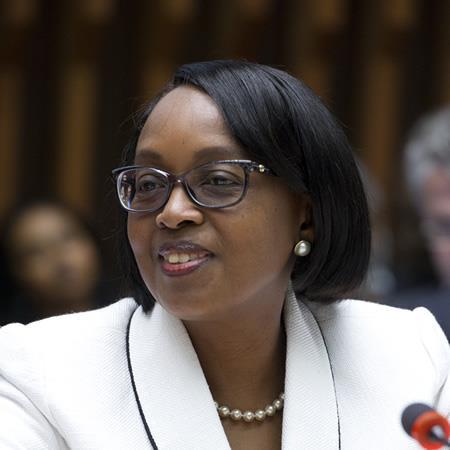
This was contained in a press statement issued in Abuja by Charity Ahrey, the Communications Officer of WHO, to commemorate the World Mental Health Day.
19m children blind globally – Opthamologist
 Adido, who disclosed to newsmen in Ilorin, the Kwara State capital, on Saturday, noted that children and the aged were usually vulnerable to eye diseases in Nigeria.
Adido, who disclosed to newsmen in Ilorin, the Kwara State capital, on Saturday, noted that children and the aged were usually vulnerable to eye diseases in Nigeria.ERA/FoEN, groups accuse Wilmar of land grab in Cross River
The Environmental Rights Action/Friends of the Earth Nigeria (ERA/FoEN), civil society groups and communities impacted by oil palm companies in Cross River State have described as worrisome, the influx of oil palm companies in the state and their expansion activities which they have described as “land grab in its most brazen form.”
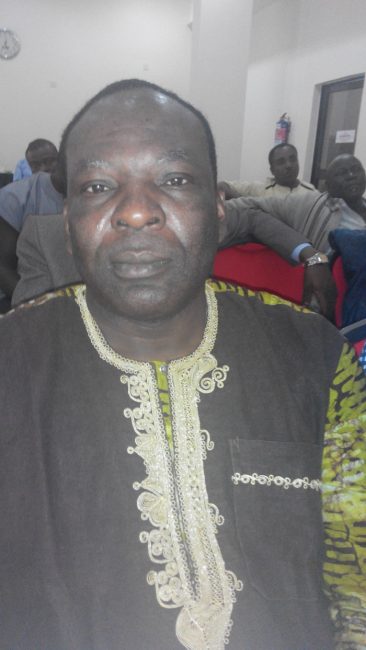
At an advocacy meeting in Calabar (the Capital of Cross River State) last week which had in attendance communities impacted by the PZ Cussons/Wilmar land grab, the groups resolved to mobilise, resist and take action to protect lands that they felt are under siege from Wilmar and oil palm companies activities that are systematically pushing locals out of their patrimony.
The Wilmar oil palm plantation impacted communities include Betem/Ehom, Akpet and Idoma communities from Biase Local Government Area (LGA) and Mbarakom/Uwet/Njagachang and Mfanosing/Aningeje from Akamkpa LGA.
In a communique issued at the end of the meeting, the groups insist that Wilmar had not only short-changed them, but has also embarked on divide and rule to keep them in a perpetuity of servitude.
ERA/FoEN Executive Director, Godwin Uyi Ojo, said: “It is disheartening that Wilmar has become the face of land grab in Cross River State employing various tactics to make profits while keeping the typical forest communities under its boots.”
Ojo alleged that Wilmar signed a Memorandum of Understanding (MOU) in 2011 with the state government wherein it was agreed that community assistance programmes such as road construction, provision of primary and secondary schools, health centres, portable water electricity and employment would be provided.
He stated that many communities insist that although they were told that an MOU exists, they have neither seen the document nor made aware of the contents of the agreement, “especially how it affects their community”.
According to him, other communities allege that Wilmar has made promises to them on employment of at least 20,000 workers and the building of a refinery but has failed to honour any as many workers earn a meagre N10,000 or less, far below the national minimum wage of N18,000.
“We are worried about Wilmar’s attempts to divide the communities through a capture of the elite, some government officials and chiefs on the one hand and ordinary community members, as a strategy of engendering divergence in views.”
One of such instance, Ojo pointed to, is a letter purportedly written by some chiefs that the communities gave their Free, Prior and Informed Consent (FPIC) to the actions and activities the company was undertaking on community land, and that an Environmental Impact Assessment (EIA) had been conducted, published and made available to all communities.
“We join our voices with that of the communities demanding that Wilmar desist from deliberately dividing the community to avoid conflicts among community members and between different communities,” he demanded.
He also advocated that the state government set in motion the process to review agreements allegedly signed between it and Wilmar on behalf of the communities and ensure that all impacted communities and civil society groups are part of an open, transparent and inclusive review process.
Ojo urged Wilmar to immediately stop the “slave labour” and instead properly negotiate wages with the workers.
Nigeria chairs committee as Adaptation Fund Board approves more projects
As adaptation demand grows, the AFB moves ahead with green light from evaluation report
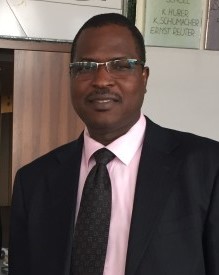
The Adaptation Fund Board (AFB) has considered a record number of project and programme applications, approving three full project proposals and five preliminary projects, for a total of over $12.4 million. The Board is also expanding its scope of operations, making decisions on regional projects for the first time alongside national adaptation projects.
This is coming even as Nigerian Peter Tarfa was made Chair of the Project Programme Review Committee (PPRC) of the AFB.
A couple of months ago, Tarfa, along with Ms. Yuka Greiler from Switzerland (who is representing Western European and other Groups), was elected during the 25th Meeting of the AFB (AFB25) in Bonn, Germany to the posts of Vice Chair and Chair of the PPRC respectively.
But at the 26th Meeting (AFB26) that also held in Bonn from October 8-9, 2015, the Board elevated Tarfa to be Chair of the PPRC from Vice Chair. Among other duties, Tarfa will be responsible for evaluating and recommending submitted project and programme proposals to the Board for approval.
An observer described the development as “a critical position and an added feather for Nigeria in international climate diplomacy.”
Last week in Bonn, the Board also decided to accredit the Central American Bank for Economic Integration (CABEI) as a Regional Implementing Entity (RIE) of the Adaptation Fund, making it the 5th regional accredited entity, and joining the 20 national, and 12 multi-national accredited bodies who partner with the Fund.
“The unprecedented number of proposals to the Fund shows the huge demand for action on adaptation to climate change – and confirms the increasing relevance of the Adaptation Fund,” said Hans Olav Ibrekk, Chair of the AFB.
“The independent evaluation report on our work shows that we are really delivering on our mandate. We have a track record of supporting projects that build the resilience of some of the world’s poorest people against the impacts of climate change. We have a strong pipeline of projects for the future. Now we urgently need to make sure that we have the financial resources to match that demand.”
Decisions taken at the 26th Adaptation Fund Board meeting included:
- Approving a project proposal, Enhancing resilience to climate change of the small agriculture in the Chilean region of O’Higgins from the Chilean International Cooperation Agency for $9.96 million
- Approving two project proposals from the Indian National Bank for Agriculture and Rural Development (NABARD), Climate proofing of watershed development projects in the states of Rajasthan and Tamil Nadu for $1.34 million, and Climate Smart Actions and Strategies in North Western Himalayan Region for Sustainable Livelihoods of Agriculture-Dependent Hill Communities for nearly $1 million
- Endorsing two concept proposals from the Indian National Bank for Agriculture and Rural Development (NABARD), and the Centre de Suivi Ecologique in Senegal, funding a total of $60.000
- Endorsing four pre-concept proposals under the new pilot programme for regional projects for a total of $80.000
- Accrediting the Central American Bank for Economic Integration (CABEI) as a Regional Implementing Entity (RIE) of the Adaptation Fund
Welcoming the positive findings of the independent evaluation report on the Fund, which stressed the Fund’s relevance, effectiveness and efficiency.
The AFB also further considered how to build synergies with the Green Climate Fund (GCF), mandating its Secretariat to continue discussions with the GCF, and requesting clarification from the Conference to the Parties to the Kyoto Protocol (the reporting body for the Fund) about the Board’s mandate to take decisions on inter-Fund relations.
The Adaptation Fund was established under the Kyoto Protocol of the UN Framework Convention on Climate Change (UNFCCC), and has committed $330 million in 50 countries since 2010 to climate adaptation and resilience activities. To date, 51 projects have been approved with the majority in the implementation stage.
Planners to explore cities’ functionality at Ilorin forum
Bothered by the fact that Nigerian cities may have failed to provide for and promote an environment sustainable for living, work and recreation, settlement development practitioners have taken up a campaign to address the unsavoury situation.
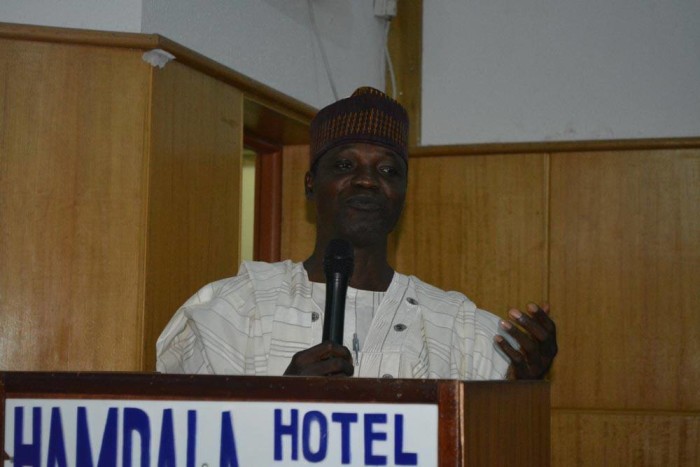
Under the aegis of their umbrella association – the Nigerian Institute of Town Planners (NITP), the city planners are using the occasion of their yearly meeting and conference to beam a light on the issue. The 46th Conference and Annual General Meeting (AGM) of the NITP has “Making Cities in Nigeria Functional” as its theme, and will hold in Ilorin, Kwara State October 27th to 30th, 2015.
Apart from taking stock of developments in the profession as well as welfare of the practitioners, the conference will attempt an overview of the functionality element of cities with a view to making them facilitate growth and development.
Chairman, Organising Committee and First National Vice-President of the NITP, Luka Achi, said: “The focus of this year’s theme is on making settlements in Nigeria functional. The human settlement is expected to provide and promote an environment suitable for sustainable living, work and recreation. In Nigeria, this dream has continued to be an illusion as settlements of various sizes and characteristics exhibit elements of disjointed and dysfunctional space use and inter-relationship.
“The impact of this can be observed in the absence of physical plans, poor transportation and related services, absence of social amenities and services and a general neglect of the socially disadvantaged group of the society. Where these plans exist, they are either distorted or not complied with.”
According to Mr. Achi, settlements are the centres of human survival and progress. “These investment, social development and cultural imprints evolve over time. The role of Planning is to ensure that these elements of human settlement progression are promoted through plans and development and control so as to ensure conduciveness, progress and fairness to all; and are sustained in the interest of future generations,” he added.
National Publicity Secretary of the NITP, Effiong Akpan, stated: “The goal of this year’s conference is to take an overview of the functionality elements of our cities with a view to exploring the application of physical planning strategies so as to make them functional and thereby facilitate growth and development of the human settlement in all its ramifications. To this extent, a practical experience sharing by the relevant stakeholders will be an added dimension to this programme.”
Nationa Secretary, Alex Ogbodo, stressed: “In fulfilling one of its objectives of traing and dissemination of information on the profession, the Institute organises National Conference and AGM every year during which issues of national importance and relevance are discussed, and recommendations are forwarded to government and other stakeholders for consideration and implementation with a view to facilitating organised growth and development in our nation.”
IPCC elects Bureau for Sixth Assessment Report
The Intergovernmental Panel on Climate Change (IPCC) completed the election of its new Bureau on Thursday, after electing Hoesung Lee of the Republic of Korea as its new Chair on Tuesday.
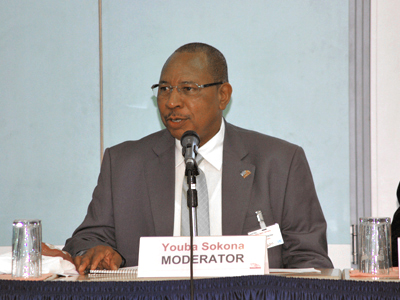
The new Bureau, which consists of 34 members, up from 31 in the previous Bureau, will lead the Panel as it works on the forthcoming Sixth Assessment Report. Members are drawn from all six of the IPCC’s regions, and include eight women, compared with five previously.
A list of the members of the new Bureau can be found here: http://www.ipcc.ch/nominations/results.shtml.
The Panel also elected its new Bureau for the Task Force on National Greenhouse Inventories (TFI), consisting of 14 members, including its two Co-Chairs. A list of members of the Task Force Bureau can be found here: http://www.ipcc.ch/nominations/results.shtml#tfb.
The two Task Force Bureau Co-Chairs are also members of the IPCC Bureau. “The new Bureau is a strong and diverse body, drawing on the richness and expertise of all the IPCC’s regions. I look forward to working with them on the Sixth Assessment Report,” said Lee.
The election took place in Dubrovnik, Croatia, where the IPCC held its 42nd Session. The IPCC also authorised the budget for the coming year. The IPCC completed its Fifth Assessment Report (AR5) in November 2014.
The key findings of the AR5 Synthesis Report are:
– Human influence on the climate system is clear;
– The more we disrupt our climate, the more we risk severe, pervasive and irreversible impacts; and
– We have the means to limit climate change and build a more prosperous, sustainable future.
The next Session of the IPCC will take place in Nairobi, Kenya, on 11-15 April, 2016.
Financial markets shifting to address climate change, says report
Private sector investments are shifting to address the challenges posed by climate change, and this trend could accelerate if governments and policy-makers take further actions to increase the demand for low-carbon, climate resilient investment, according to a report released today by the United Nations Secretary-General’s Climate Change Support Team.
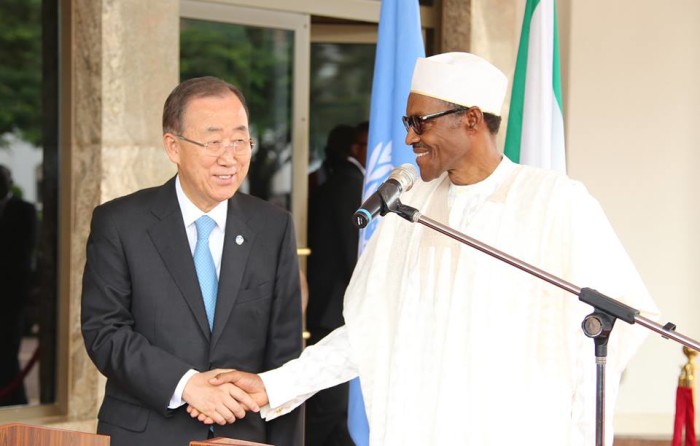
The new report, “Trends in Private Sector Climate Finance,” found that the private sector had made significant strides in response to the challenge posed by climate change since the 2014 Climate Summit in New York, where a range of finance sector including leaders from banks, pension funds, insurers and asset managers announced a series of high-profile commitments and targets to increase climate finance.
The report argues that the private sector has led the effort so far, but that now it is time for the policy makers to take action in order to accelerate the pace of private sector investment and engagement.
The report was presented to finance ministers at a special gathering in Lima, Peru that was jointly convened by France and Peru at the margins of the Annual Meetings of the World Bank Group and the International Monetary Fund. It is a major milestone meeting, coming just over a month before countries meet in Paris to conclude a universal climate change agreement.
According to the new report, not only are most of the commitments made by the private sector at the Summit on track to being realised, moreover, hundreds of billions of dollars have been invested since the Summit to support low-carbon and climate-resilient investments in all parts of the world.
The increasing drive by the private sector, in both developed and developing countries is one of a series of trends that will help reduce emissions and improve climate resilience while providing energy, reducing air pollution and delivering a host of other benefits.
The report lists five inflection points that are signaling long term shifts. In addition to direct investments by the private sector, there has been the creation and expansion of the green bond market, which will issue between US $50-70 billion for climate finance in 2015. Other shifts include: the increased application of internal carbon pricing by companies that will determine investment opportunities; increased concern around the activities of carbon-intensive assets and companies; and the sustained scaling up of efforts by the insurance sector to respond to the climate impacts that are already locked in.
The report also highlights that despite these long-term signals, serious gaps remain. Low-carbon investments remain insufficient to put the world on a less than 2°C degree pathway, particularly in the developing countries, despite a finding that investment in renewables in emerging and developing countries are outpacing that of OECD members.
While the public sector has a vital role to play to help the world reorient itself to a low-carbon, climate-resilient future, the report concluded that the bulk of the financing and insurance driving the much needed transition will be provided by the private sector.
UN Secretary-General Ban Ki-moon told the 70th Session of the UN General Assembly in September that “Climate finance will be crucial,” and he urged developed countries to meet the agreed goal of $100 billion per year by 2020.
The report does not address the ongoing negotiations within the UNFCCC as to what constitutes climate finance or on what should be counted towards the goal of mobilising $100 billion a year by 2020 to address the needs of developing countries. Rather, it provides details on the progress made on the commitments and targets set by the private sector and the changes in the financial markets that are emerging.
The report states that the private sector has emerged more fully as a partner since the 2009 Climate Conference in Copenhagen. Action in the finance sector coalesced, and received a substantial boost, at the 2014 Climate Summit, which was “born of a recognition that the UN itself needed to change in order to facilitate the economic transition,” and aimed to bring together all actors with a role in addressing climate change to catalyse creative ideas and engender new partnerships.

